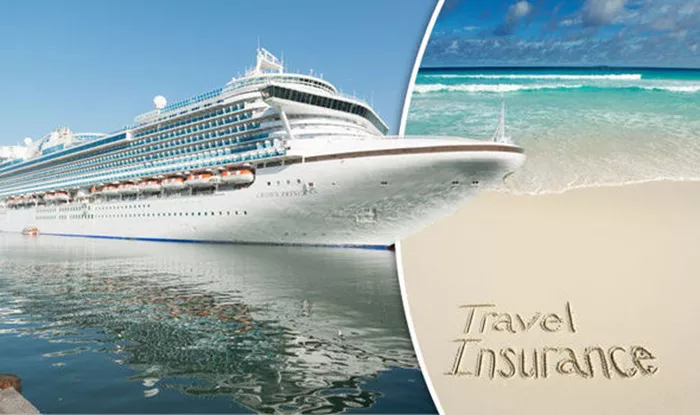Insurance is a crucial consideration for any traveler, especially those embarking on a cruise. The open sea, exotic ports, and myriad onboard activities present unique risks and uncertainties that can be mitigated by comprehensive cruise insurance. This essay will explore in detail the various aspects of cruise insurance coverage, including trip cancellation, travel delays, baggage loss or damage, medical coverage, trip interruption, and itinerary changes. Additionally, it will emphasize the importance of understanding the specific terms and limitations of an insurance policy.
Trip Cancellation
Trip cancellation is one of the most critical components of cruise insurance. It provides a safety net for travelers who need to cancel their cruise for valid reasons, ensuring that they do not lose their investment. Here are some common circumstances under which a customer can cancel their cruise and receive a full refund:
Unforeseen Illness or Injury: If the traveler or an immediate family member falls ill or is injured before the departure, cruise insurance typically covers the cancellation costs. This coverage usually requires a doctor’s note or medical documentation to validate the claim.
Family Emergencies: In the event of a death or severe illness of a close family member, travelers can cancel their cruise and claim a refund. Proof of the emergency, such as a death certificate or hospital records, is generally required.
Natural Disasters: If a natural disaster, such as a hurricane, earthquake, or flood, makes it impossible to travel to the port of departure or if the disaster affects the traveler’s home, trip cancellation coverage can be invoked.
Jury Duty or Subpoena: Being called for jury duty or receiving a subpoena that cannot be postponed can also be grounds for trip cancellation. Official court documents must be provided to support the claim.
Employment Reasons: Unexpected job loss or mandatory work obligations can necessitate trip cancellation. In such cases, documentation from the employer is required.
Travel Advisories: If the destination or ports of call are subject to new travel advisories or warnings issued by relevant authorities, travelers might be covered for cancellations.
The exact circumstances and required documentation can vary by insurance provider, so it is essential for travelers to review their policy details carefully.
Travel Delays
Travel delays can be highly disruptive, especially when they cause travelers to miss their cruise departure. Cruise insurance often includes coverage for travel delays, providing reimbursement for additional expenses incurred as a result. Here’s what is typically covered:
Missed Departure: If a flight delay, cancellation, or other travel disruption causes the traveler to miss the cruise departure, the insurance may cover the cost of catching up with the ship at the next port. This can include expenses for additional transportation such as flights, ferries, or trains, as well as accommodations and meals during the delay.
Accommodation and Meals: When a delay forces the traveler to stay overnight or for an extended period, the insurance usually covers reasonable costs for accommodation and meals.
Transportation Changes: If the delay requires changes to the original travel plans, such as rebooking flights or arranging alternative transportation, these costs are typically covered.
Compensation for Delay: Some policies also provide a fixed benefit for delays exceeding a certain number of hours, which can help cover incidental expenses.
To claim these benefits, travelers generally need to provide documentation such as delay notifications from airlines, receipts for additional expenses, and a detailed account of the delay’s cause.
Baggage Loss/Damage
Baggage loss, theft, or damage can significantly disrupt a cruise vacation. Cruise insurance usually offers coverage to mitigate these risks and compensate travelers for their losses. The coverage typically includes:
Lost Baggage: If checked or carry-on baggage is lost by an airline, cruise line, or other transportation provider, the insurance covers the replacement cost of the lost items up to a specified limit. Travelers need to provide a list of the lost items and their approximate value, along with documentation from the carrier confirming the loss.
Stolen Baggage: In the unfortunate event that baggage is stolen, insurance can cover the cost of replacing the stolen items. A police report documenting the theft is generally required to process the claim.
Damaged Baggage: If baggage is damaged during transit, the insurance covers repair or replacement costs. Documentation from the carrier acknowledging the damage is needed, along with receipts or estimates for repair or replacement.
Delayed Baggage: If baggage is delayed, insurance may provide an allowance for the purchase of essential items such as clothing and toiletries. This benefit usually kicks in aftera certain number of hours of delay, and receipts for the purchases must be submitted.
The claim process for baggage issues requires prompt reporting of the loss, theft, or damage to the relevant authorities (e.g., airline, cruise line, or local police) and submission of the necessary documentation to the insurance provider.
Medical Coverage
Medical emergencies can occur unexpectedly during a cruise, and the cost of treatment, especially in international waters or foreign ports, can be exorbitant. Cruise insurance offers crucial medical coverage, including:
Emergency Medical Treatment: Coverage for medical expenses incurred due to illness or injury while on the cruise. This includes doctor visits, hospital stays, medication, and other necessary treatments. Travelers need to keep detailed medical records and receipts to support their claims.
Medical Evacuation: If a medical emergency requires evacuation to the nearest suitable medical facility or back home, insurance covers the cost of transportation, which can include air ambulances, helicopters, or other specialized medical transport.
Repatriation of Remains: In the tragic event of a traveler’s death, insurance covers the cost of returning the remains to their home country. This includes all necessary arrangements and transportation expenses.
Dental Emergencies: Some policies include coverage for emergency dental treatment, which can be crucial if a dental issue arises during the cruise.
Medical coverage typically requires pre-approval for non-emergency treatments and immediate notification of the insurance provider in the event of an emergency. Keeping all medical documentation, including bills and reports, is essential for a smooth claims process.
Trip Interruption
Trip interruption coverage is designed to protect travelers who need to cut their cruise short and return home due to an emergency. This coverage can include:
Family Emergencies: If a traveler needs to return home due to the sudden illness, injury, or death of an immediate family member, insurance covers the cost of additional transportation and possibly the unused portion of the cruise.
Personal Emergencies: Emergencies such as home damage due to fire, flood, or burglary can necessitate an early return. Insurance helps cover the expenses involved in interrupting the trip and returning home.
Traveler’s Illness or Injury: If the traveler becomes seriously ill or injured and needs to leave the cruise early, the insurance covers the cost of return transportation and possibly reimburses the unused part of the cruise.
Natural Disasters and Political Unrest: If a natural disaster or sudden political unrest affects the safety of the traveler, insurance may cover the costs associated with returning home early.
To claim trip interruption benefits, travelers need to provide documentation of the emergency, such as medical reports, death certificates, or proof of home damage, along with receipts for the additional travel expenses incurred.
Itinerary Changes
Cruises often involve multiple ports of call, and itinerary changes due to weather, mechanical issues, or other factors are not uncommon. Cruise insurance can cover:
Missed Port Calls: If the cruise ship skips a scheduled port due to weather or other reasons, insurance might provide compensation for the missed port. This can include reimbursement for pre-paid excursions or other activities planned at the missed port.
Extended Delays: If the cruise is delayed for an extended period, insurance can cover additional expenses such as accommodation, meals, and transportation incurred during the delay.
Alternative Arrangements: If the itinerary change requires travelers to make alternative arrangements, such as booking different excursions or activities, insurance may cover these additional costs.
Compensation for Inconvenience: Some policies offer a fixed benefit for significant itinerary changes or disruptions as compensation for the inconvenience caused.
Travelers need to keep detailed records of the itinerary changes, including official notifications from the cruise line and receipts for any additional expenses incurred due to the changes.
Policy Details
Understanding the specific terms and limitations of a cruise insurance policy is crucial for maximizing its benefits. Here are key aspects to consider:
Coverage Limits: Policies have specific limits for different types of coverage (e.g., medical expenses, baggage loss). It is essential to know these limits and ensure they are adequate for your needs.
Exclusions: All policies have exclusions, which are situations or conditions that are not covered. Common exclusions include pre-existing medical conditions, high-risk activities, and certain destinations.
Claims Process: Familiarize yourself with the claims process, including required documentation, timelines for reporting incidents, and how to contact the insurance provider in an emergency.
Policy Conditions: Understand the conditions under which coverage applies, such as the need for pre-approval for certain medical treatments or specific requirements for filing a claim.
Cancellation Windows: Know the time frames within which you can cancel or modify your policy, as well as any associated fees or penalties.
Additional Riders: Some policies offer optional riders for enhanced coverage, such as increased medical limits or coverage for specific activities. Evaluate if these additional coverages are beneficial for your trip.
Conclusion
Cruise insurance is a comprehensive safeguard that protects travelers from a wide range of potential issues that can arise before and during a cruise. By understanding the detailed coverage areas, including trip cancellation, travel delays, baggage loss or damage, medical coverage, trip interruption, and itinerary changes, travelers can make informed decisions.
FAQs about Cruise Insurance
1. What is included in cruise insurance?
Cruise insurance typically includes coverage for various scenarios that might occur before or during your cruise. The main components usually covered are:
Trip Cancellation/Interruption: Reimbursement for non-refundable expenses if you need to cancel or interrupt your cruise due to unforeseen circumstances such as illness, family emergencies, or natural disasters.
Medical Expenses: Coverage for medical emergencies and treatments while on board or at ports of call.
Emergency Evacuation: Costs related to emergency transportation to the nearest medical facility or back home.
Baggage Loss/Delay: Compensation for lost, stolen, or delayed baggage.
Travel Delays: Reimbursement for additional expenses incurred due to travel delays, such as hotel stays and meals.
2. Do I need extra travel insurance for a cruise?
While cruise insurance provides essential coverage, additional travel insurance might be beneficial, especially if your trip includes flights or extended stays before or after the cruise. Extra travel insurance can offer:
Extended Trip Cancellation/Interruption: Broader coverage beyond the cruise, including flights, hotels, and other travel arrangements.
Higher Medical Coverage: Additional medical and evacuation coverage, particularly important for international travel where healthcare costs can be high.
Non-Cruise Activities: Coverage for excursions and activities that might not be included in standard cruise insurance.
3. Should you purchase cruise insurance?
Purchasing cruise insurance is generally a good idea to protect your investment and ensure peace of mind. Consider the following factors:
Cost of the Cruise: If the cruise is expensive, insurance can help safeguard your financial investment.
Health Concerns: If you have existing health issues or are traveling with someone who does, insurance is crucial.
Unpredictable Circumstances: Life is unpredictable, and insurance can provide a safety net against cancellations, interruptions, or emergencies.
Destination: For cruises to remote or international destinations, insurance can cover potential medical emergencies and evacuations.
4. What is usually covered by travel insurance?
Travel insurance generally includes a wide range of coverages to protect you against unforeseen events during your trip:
Trip Cancellation/Interruption: Coverage for non-refundable costs if you need to cancel or cut short your trip due to covered reasons like illness, injury, or severe weather.
Emergency Medical and Dental: Costs for medical treatment and emergency dental care while traveling.
Emergency Evacuation/Repatriation: Transportation costs for emergency medical evacuations or returning your remains in the event of death.
Baggage and Personal Belongings: Compensation for lost, stolen, or damaged baggage and personal items.
Travel Delays: Reimbursement for additional expenses like meals and accommodations if your travel is delayed for a covered reason.
Accidental Death and Dismemberment: Benefits to your beneficiaries if you suffer a fatal accident or serious injury during your trip.
You Might Be Interested In





















